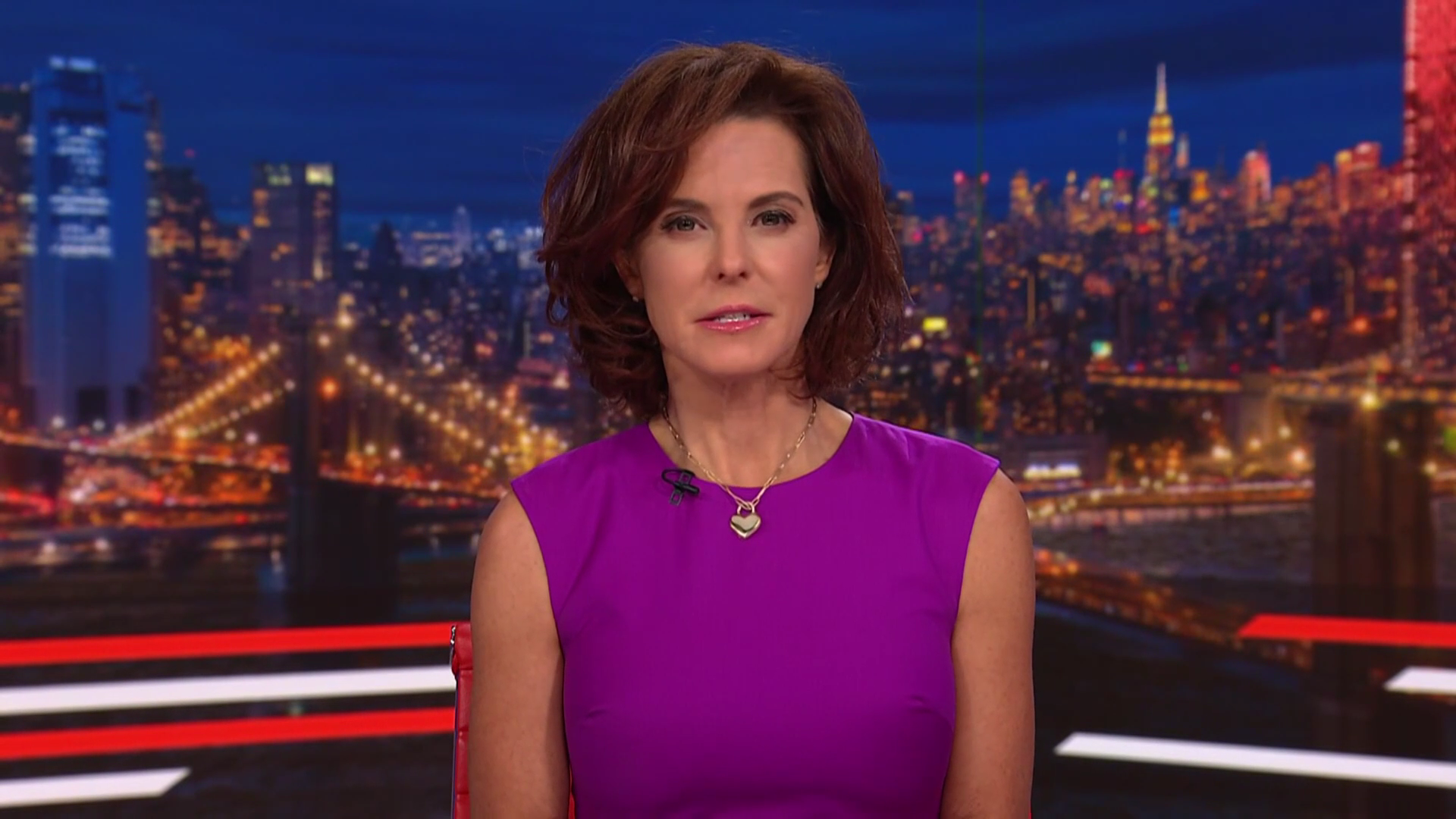Stephanie Ruhle Stroke: An In-Depth Look At Her Journey, Recovery, And Impact
Stephanie Ruhle stroke incident has captured the attention of millions worldwide, highlighting not only her resilience but also the broader conversation around health, media personalities, and public awareness. As a prominent journalist and anchor on MSNBC, Ruhle's battle with stroke has become a pivotal moment in her career and personal life. This article delves into the details of her journey, the implications of her experience, and how it has influenced both her career and the public's perception of strokes.
Stephanie Ruhle's stroke is not just a personal story but also a wake-up call for many. It emphasizes the importance of recognizing symptoms early and understanding the risk factors. This article will provide a comprehensive overview of her experience, recovery, and the lessons learned, all while ensuring that the information is accessible and valuable to readers.
By examining Stephanie Ruhle's stroke and its aftermath, we aim to educate readers about the realities of stroke, the importance of timely medical intervention, and how individuals can take proactive steps to protect their health. Let us explore this journey together.
Read also:Zach Roerig The Journey Of A Versatile Actor
Table of Contents
- Biography of Stephanie Ruhle
- The Stroke Incident
- Recovery Process
- Impact on Career
- Raising Public Awareness
- Understanding Stroke Risk Factors
- Recognizing Stroke Symptoms
- Prevention Strategies
- Building a Support System
- Conclusion
Biography of Stephanie Ruhle
Stephanie Ruhle is a renowned journalist and anchor for MSNBC, known for her sharp reporting and insightful analysis. Before her stroke, she had already carved a niche for herself in the world of journalism. Below is a brief overview of her life and career:
Personal Data
| Full Name | Stephanie Ruhle |
|---|---|
| Date of Birth | April 23, 1972 |
| Place of Birth | Cleveland, Ohio, USA |
| Profession | Journalist, Anchor |
| Employer | MSNBC |
The Stroke Incident
In 2022, Stephanie Ruhle suffered a stroke that temporarily sidelined her from her duties at MSNBC. The incident was unexpected, as Ruhle had been in good health and maintained an active lifestyle. Her stroke highlighted the unpredictable nature of such medical emergencies and the importance of vigilance.
Reports suggest that Ruhle experienced classic symptoms of a stroke, including sudden numbness and difficulty speaking. Her quick recognition of these signs and immediate medical attention were crucial in minimizing long-term effects.
Key Moments
- Ruhle's stroke occurred during a busy work period.
- She was diagnosed with a transient ischemic attack (TIA), often referred to as a "mini-stroke."
- Medical professionals acted swiftly, ensuring minimal damage.
Recovery Process
Stephanie Ruhle's recovery process was both challenging and inspiring. She underwent extensive rehabilitation, which included physical therapy, speech therapy, and occupational therapy. Her determination to return to her career and regain her health was evident throughout this period.
Studies show that early intervention and consistent therapy significantly improve recovery outcomes for stroke patients. Ruhle's case is a testament to the effectiveness of these approaches.
Therapy and Support
- Physical therapy to regain strength and mobility.
- Speech therapy to address any lingering communication issues.
- Occupational therapy to assist with daily activities.
Impact on Career
Despite the challenges posed by her stroke, Stephanie Ruhle's career continued to thrive. Her return to MSNBC was met with widespread support from colleagues and viewers alike. The incident did not hinder her professional growth; instead, it added depth to her storytelling and personal connection with her audience.
Read also:Exploring The Impact Of Technology On Modern Life
Ruhle's transparency about her health journey has inspired many to prioritize their well-being. Her story serves as a reminder that health should never be compromised, even in high-pressure environments like journalism.
Raising Public Awareness
Stephanie Ruhle has used her platform to educate the public about strokes. By openly discussing her experience, she has brought attention to the importance of recognizing symptoms early and seeking medical help promptly. Her efforts have contributed to a greater understanding of strokes and their impact on individuals and families.
According to the Centers for Disease Control and Prevention (CDC), stroke is a leading cause of death and disability in the United States. Ruhle's advocacy aligns with broader public health campaigns aimed at reducing stroke incidence and improving outcomes.
Understanding Stroke Risk Factors
Stroke risk factors vary, but common contributors include high blood pressure, smoking, diabetes, and a sedentary lifestyle. Stephanie Ruhle's case underscores the importance of managing these risk factors to prevent strokes. While some risks are unavoidable, lifestyle changes can significantly reduce the likelihood of experiencing a stroke.
Data from the American Heart Association (AHA) indicates that controlling hypertension alone can reduce stroke risk by up to 50%. This statistic emphasizes the importance of regular health check-ups and proactive health management.
Managing Risk Factors
- Regular exercise to maintain cardiovascular health.
- Healthy diet to control weight and blood pressure.
- Quitting smoking and limiting alcohol consumption.
Recognizing Stroke Symptoms
Recognizing stroke symptoms is critical for timely intervention. The acronym FAST (Face, Arms, Speech, Time) is widely used to help identify signs of a stroke:
- Face: Drooping on one side of the face.
- Arms: Weakness or numbness in one arm.
- Speech: Slurred or difficult speech.
- Time: Call emergency services immediately.
Studies indicate that prompt medical attention can prevent severe damage and improve recovery prospects. Stephanie Ruhle's experience exemplifies the importance of acting quickly when symptoms arise.
Prevention Strategies
Preventing strokes involves a combination of lifestyle changes and medical interventions. Regular health screenings, medication adherence, and adopting healthy habits are all essential components of stroke prevention. Stephanie Ruhle's advocacy for these strategies has encouraged many to take charge of their health.
Research published in reputable medical journals supports the effectiveness of preventive measures in reducing stroke incidence. By following these guidelines, individuals can significantly lower their risk of experiencing a stroke.
Preventive Measures
- Annual health check-ups to monitor blood pressure and cholesterol levels.
- Adherence to prescribed medications for chronic conditions.
- Engaging in stress-reducing activities like meditation or yoga.
Building a Support System
A strong support system is vital for stroke recovery. Family, friends, and healthcare professionals play crucial roles in helping individuals regain their independence and quality of life. Stephanie Ruhle's recovery was bolstered by the unwavering support of those around her.
Research shows that social support enhances recovery outcomes and improves mental health during challenging times. By fostering connections and seeking help when needed, individuals can navigate the recovery process more effectively.
Conclusion
Stephanie Ruhle's stroke journey is a powerful reminder of the importance of health awareness and proactive measures. Her resilience and dedication to recovery have inspired countless individuals to prioritize their well-being. By understanding stroke risk factors, recognizing symptoms, and implementing prevention strategies, we can all take steps to protect ourselves and our loved ones.
We encourage readers to share this article, leave comments, and explore other resources on our site. Together, we can continue the conversation around health, awareness, and resilience. Let Stephanie Ruhle's story be a catalyst for positive change in your life and community.
Article Recommendations
.png)
.png)
